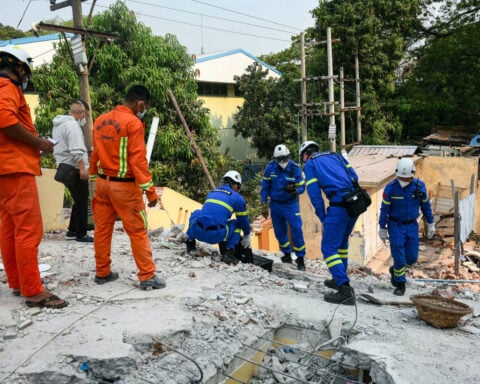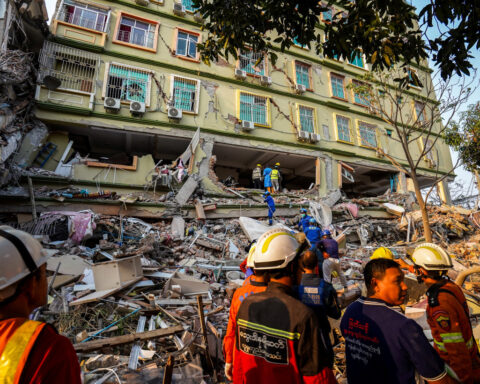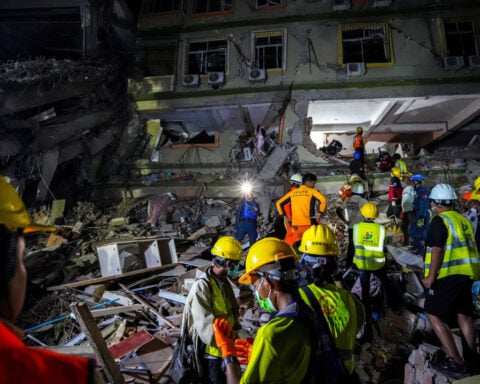Health researchers have found that a shortened course of radiation therapy is just as effective as the conventional method for prostate cancer treatment, according to a study co-led by the University of California, Los Angeles.
The research, published in the Lancet Oncology provides compelling evidence that moderately hypofractionated radiotherapy (MHFRT) offers the same cancer control as traditional approaches. According to this research, MHFRT delivers higher doses of radiation per session over a shorter period.
“We believe these data strongly support that isodose MHFRT should become the preferred standard of care MHFRT regimen for prostate cancer,” said Dr. Amar Kishan. He’s the executive vice chair of radiation oncology at the David Geffen School of Medicine at UCLA and co-first author of the study.
The standard-dose MHFRT approach reduces treatment time from seven to eight weeks to four to five weeks. This is a significant advantage for patients undergoing radiotherapy.
Researchers analyzed data from more than 5,800 patients across seven randomized clinical trials comparing conventional therapy with two different MHFRT approaches. It includes isodose MHFRT and dose-escalated MHFRT. Isodose MHFRT maintains a similar total radiation dose to standard treatment, while dose-escalated MHFRT increases the total dose to enhance tumor control.
The analysis showed patients who received isodose MHFRT had similar cancer control and side effects compared to those receiving conventional radiation therapy. There was no significant difference in five-year progression-free survival rates, which were 77.0% for MHFRT versus 75.6% for conventional treatment.
“More broadly, there appears to be little reason to consider conventional radiotherapy over MHFRT for the types of patients enrolled in these trials given these results,” Kishan said.
Patients who received higher dose-escalated MHFRT did not show improved cancer control compared to those receiving standard doses, which was a key finding. The five-year progression-free survival rates were identical to conventional therapy at 82.7% in both groups.
Importantly, the study showed that patients who received the higher dose-escalated MHFRT had many more gastrointestinal side effects (7.2% vs. 4.9%), especially bowel problems, than those who received standard treatment.
“These findings reinforce isodose MHFRT as the standard of care, offering the same cancer control as conventional treatment but with fewer side effects than dose-escalated MHFRT,” Kishan said. “Patients can safely opt for a shorter treatment schedule without compromising their outcomes, ensuring they receive effective care with fewer visits and minimal added risk.”
MHFRT has become the most commonly used radiotherapy regimen for prostate cancer. However, there are ongoing concerns about whether the delivery of a higher daily radiation dose increases the risk of urinary and bowel issues, such as urinary incontinence, chronic diarrhea, and rectal bleeding.
This study directly addresses those worries by showing that the standard-dose MHFRT method does not make the treatment more harmful than usual. However, the dose-escalated method does increase the risk of side effects without improving cancer control.
The isodose MHFRT approach provides the same effectiveness as conventional therapy without increasing toxicity and requires fewer treatment sessions.
The findings come as cancer centers are increasingly adopting shortened treatment regimens to improve patient convenience and quality of life during cancer therapy.
For men facing decisions about prostate cancer treatment, the research suggests the shorter MHFRT approach offers a valuable option. It can reduce the treatment burden without sacrificing effectiveness or increasing side effects.
Related Articles:

 Trump has begun another trade war. Here's a timeline of how we got here
Trump has begun another trade war. Here's a timeline of how we got here
 Canada's leader laments lost friendship with US in town that sheltered stranded Americans after 9/11
Canada's leader laments lost friendship with US in town that sheltered stranded Americans after 9/11
 Chinese EV giant BYD's fourth-quarter profit leaps 73%
Chinese EV giant BYD's fourth-quarter profit leaps 73%
 You're an American in another land? Prepare to talk about the why and how of Trump 2.0
You're an American in another land? Prepare to talk about the why and how of Trump 2.0
 Chalk talk: Star power, top teams and No. 5 seeds headline the women's March Madness Sweet 16
Chalk talk: Star power, top teams and No. 5 seeds headline the women's March Madness Sweet 16
 Purdue returns to Sweet 16 with 76-62 win over McNeese in March Madness
Purdue returns to Sweet 16 with 76-62 win over McNeese in March Madness








